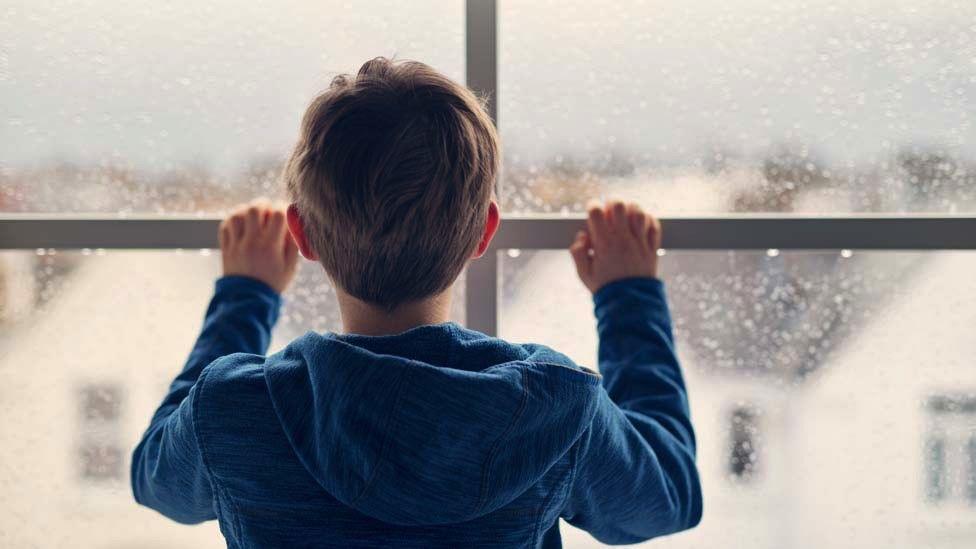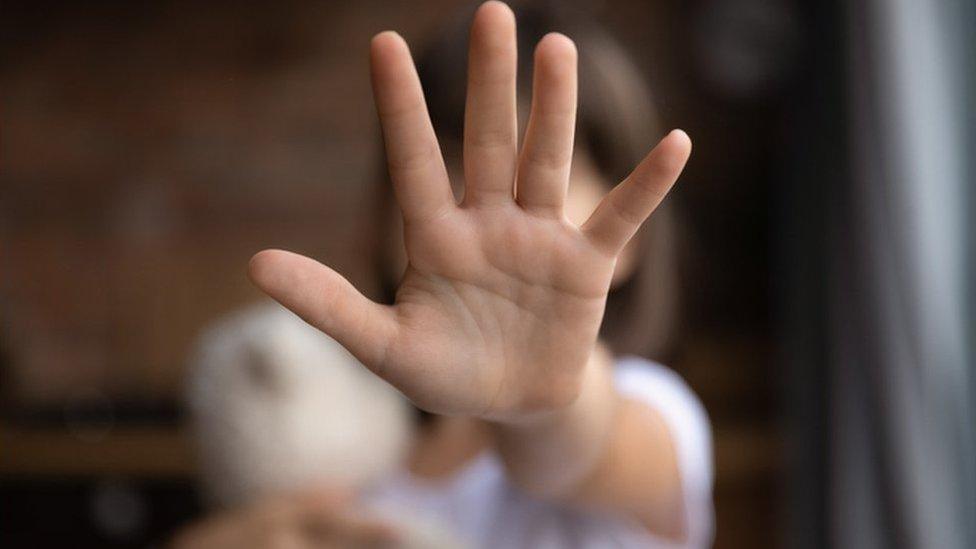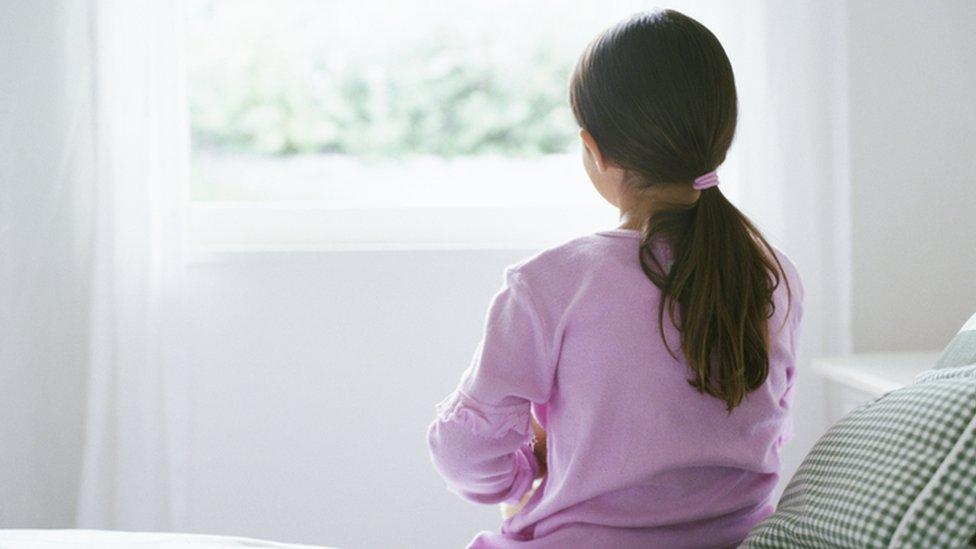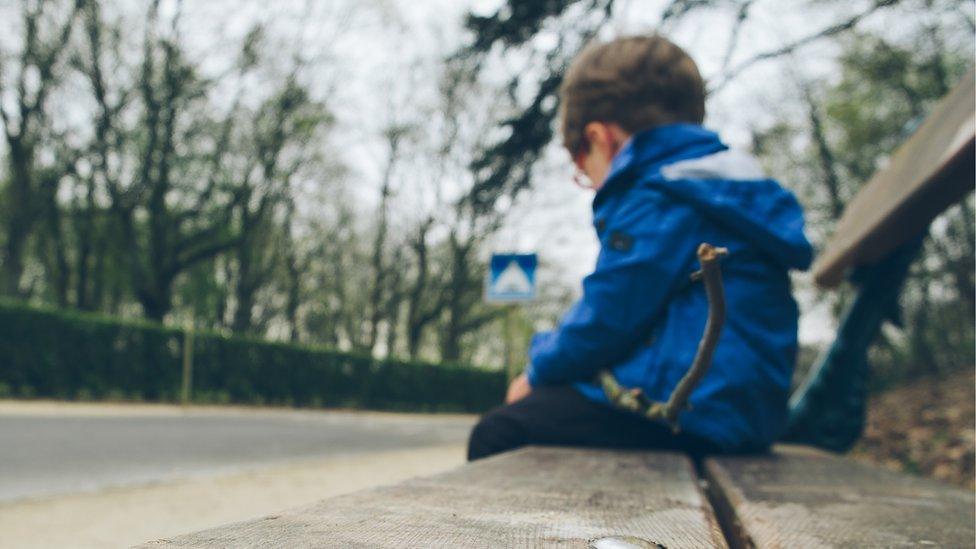Covid-19: At-risk children in NI 'disadvantaged' by support cuts
- Published

The report highlights a significant fall in referrals to child services during the Covid-19 pandemic
Vulnerable and at-risk children were "particularly disadvantaged" by lockdown due to a reduction in social contact and support services.
That is according to the Safeguarding Board for Northern Ireland's (SBNI) independent chair Bernie McNally.
The comments feature in her foreword to the board's report for 2020-21.
It also showed a significant fall in child protection referrals to health trusts during the first year of the coronavirus pandemic.
It found that there were 1,921 child protection referrals received by trusts in 2020-21, down from more than 3,000 in 2019-20.
However, Ms McNally said that child protection referrals "rose again significantly" after the first lockdown - which began in March 2020 - ended.
The SBNI brings together a number of agencies and organisations which oversee the safeguarding and welfare of children and young people in Northern Ireland.
The board had previously expressed concerns that referrals of vulnerable children to the police and social services fell during lockdowns.
The Department of Health (DoH) had also previously said that referrals to children's social services had decreased when most pupils were not in school.
Rise in number of children in care
In February 2021, Health Minister Robin Swann said children's services remained open and ready to help protect children and to support families despite the pandemic.
That work is reflected in aspects of SBNI's report for 2020-21.
It said that just over 23,000 children in Northern Ireland were known to social services as a "child in need" in 2020-21, similar to 2019-20.
Last year paediatrician Dr Julie-Ann Maney said a strategy was essential to tackle child poverty in Northern Ireland
That means that about one child in every 20 (5.2%) in Northern Ireland is regarded as a "child in need" - defined by SBNI as "unlikely to achieve or maintain a reasonable level of health or development without the provision of services".
Some paediatricians have previously expressed related concerns about the number of children in poverty in Northern Ireland.
According to SBNI, the number of children on the child protection register remained similar to 2019-20 at just under 2,300.
The majority of children were on the register due to neglect and/or physical abuse.

The report noted that at risk children were particularly disadvantaged by the pandemic stay-at-home messaging
There was a rise in the number of "looked-after children" - those in the care of health and social care trusts, including in foster or residential care - to 3,530, up by 250 on 2019-20.
That is the highest number of "looked-after children" recorded since the introduction of the Children (Northern Ireland) Order 1995.
'Reduction in vital support'
In her foreword to the annual report, Ms McNally said organisations protecting children had continued to work hard throughout the pandemic in challenging circumstances.
"Although children tend not to get seriously ill from Covid-19 it would appear that they may well have been disproportionately impacted upon by the frequent 'lockdowns', social isolation and prolonged periods of time away from school and day care services," she wrote.
"Vulnerable and at-risk children were particularly disadvantaged as the 'stay at home' message resulted in less social contact and a reduction in vital family support services.
"As the child protection agencies attempted to continue to provide essential child protection services, police and social workers were reporting higher levels of domestic violence and abuse.
"Gateway teams initially were reporting a drop in child protection referrals, partly due to schools being closed but also because concerned citizens may not have wanted to add any further pressures onto the system.
"Following the end of the first 'lockdown' period the child protection referrals rose again significantly with some initial indications of a rise in the number of children becoming 'looked after'."

Last year Robin Swann said children's services would remain open despite the pandemic
The SBNI report said that mental health, domestic violence and abuse, and neglect were the "key issues facing the childhood population in Northern Ireland".
The report also said that the operation of a scheme in which police would alert schools if their pupils had been affected by domestic violence had been initially delayed by the pandemic.
Operation Encompass is a partnership between the Police Service of Northern Ireland (PSNI), the SBNI and the Education Authority, aimed at supporting children who witness domestic abuse at home.
It has been in operation in police forces and schools in England and Wales for a number of years.
Despite the initial delay, Operation Encompass did begin as a pilot scheme in 60 schools in County Down in September 2021.
The SBNI said that work would continue towards operating the scheme more widely in schools across Northern Ireland.
Related topics
- Published17 August 2021

- Published25 January 2021
